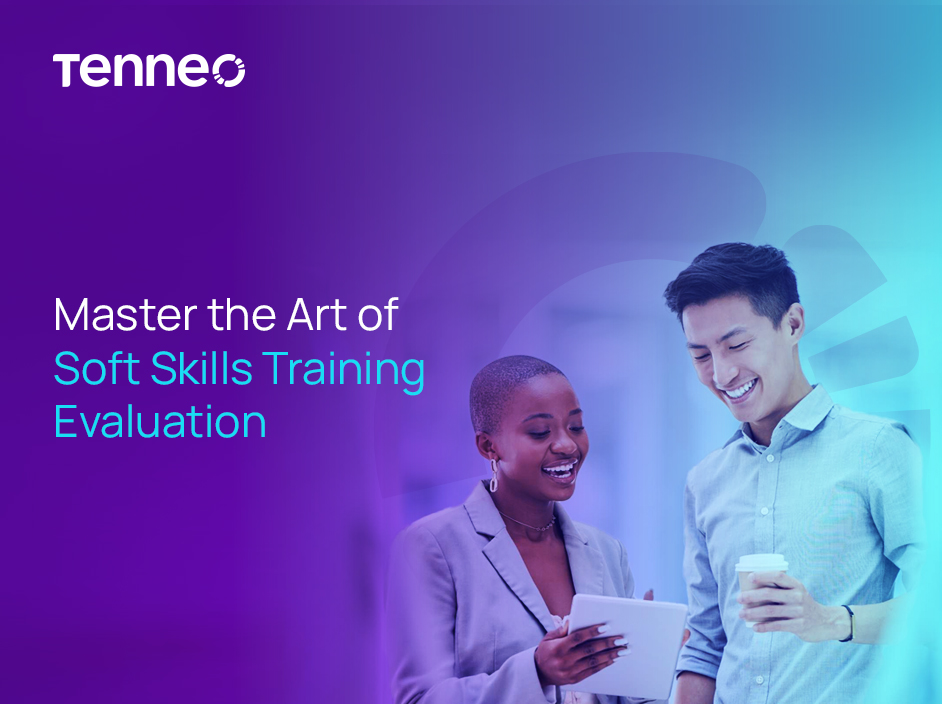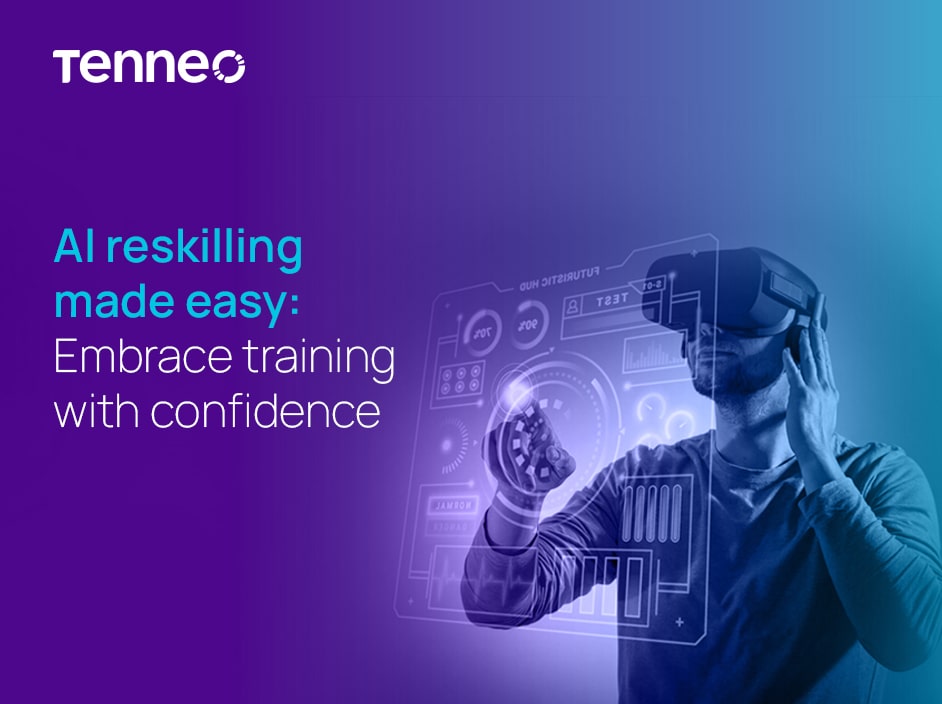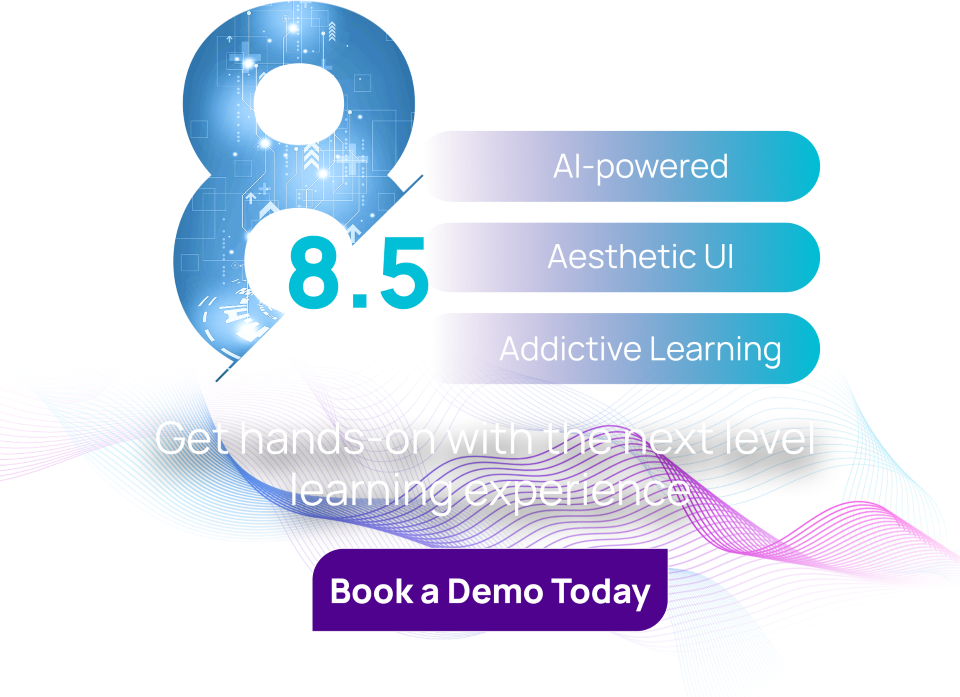
Measuring Soft Skills: The Challenges and Strategies for Training Evaluation
September 22, 2023
Overcome Employee Resistance to AI Reskilling
October 5, 2023
Measuring Soft Skills: The Challenges and Strategies for Training Evaluation
September 22, 2023
Overcome Employee Resistance to AI Reskilling
October 5, 2023Training Effectiveness Evaluation – How does Tenneo do it?

Gone are the days of relying on subjective opinions and anecdotal evidence to assess training effectiveness. Following the advent of data analytics and data-driven insights, businesses have the means to make strategic, informed decisions that can propel them forward. Learning systems have ushered in a new era of training evaluation, where traditional, subjective methods are replaced with data-driven approaches that empower decision-makers with actionable insights, transforming training from a shot in the dark into a strategic and impactful endeavor.
Unlocking Insights with Data-Driven Evaluation
In today's digital age, data is king, and leveraging it can revolutionize the way organizations measure the learning impact of their training programs. Traditional methods of evaluating training effectiveness often relied on subjective opinions and anecdotal evidence. However, with the advent of analytics and data-driven insights, businesses now have the tools to make informed decisions. This is where Tenneo LMS shines.
Tenneo LMS offers an array of features, with BI reporting being a game-changer. BI reporting provides organizations with a comprehensive view of their training programs, enabling them to monitor learning adoption and course completion rates in real-time. This data-driven approach allows organizations to identify trends, patterns, and areas that require improvement. It empowers decision-makers with actionable insights, transforming training from guess work to a strategic endeavor.
The Kirkpatrick Model: A Framework for Evaluation
To understand how Tenneo LMS assists in evaluating training effectiveness, let's turn to the renowned Kirkpatrick Model. Developed by Donald Kirkpatrick, this model categorizes evaluation into four levels, each building upon the last. These levels provide a structured framework for assessing the impact of training:
L1 - Reaction:
The first level of Kirkpatrick's Model, Reaction, lays the foundation for evaluating the effectiveness of a training program by focusing on participants' immediate reactions. This stage aims to answer critical questions such as: Were the learners engaged during the training? Did they find the content relevant to their roles and responsibilities? Understanding the participants' initial responses helps organizations gauge the overall learner experience and whether the training content aligns with their expectations.
How Tenneo LMS facilitates L1 - Reaction Assessment
- Surveys: Tenneo LMS includes a robust survey feature that allows organizations to create and distribute customized surveys to learners after each training session. These surveys can gather valuable insights into learners' immediate reactions. Questions can revolve around aspects like content clarity, training materials, instructor effectiveness, and overall satisfaction.
- Review and Rating Feature: Beyond surveys, Tenneo LMS offers a review and rating feature for each course. Learners can provide feedback and rate the training content, delivery, and relevance. This feature enables organizations to collect real-time feedback that can be used to assess and improve training quality swiftly.
- Real-Time Feedback: The beauty of Tenneo LMS is that it provides real-time feedback. This means that trainers and administrators can access learners' reactions immediately after a training session concludes. If any issues or concerns arise, adjustments can be made promptly to enhance the training experience for subsequent sessions.
L2 – Learning
Moving on to the second level of Kirkpatrick's Model, Learning, we delve into assessing the extent to which participants have gained knowledge and skills through the training program. This phase aims to answer essential questions like: Have the learners acquired the intended knowledge? Can they demonstrate the skills they were taught? Evaluating learning is crucial because it provides insights into the effectiveness of the training content and methods.
How Tenneo LMS facilitates L2 - Learning
- Online Assessments: Tenneo LMS offers a comprehensive suite of online assessment tools. These assessments can take various forms, including quizzes, tests, and assignments. Organizations can design assessments that align with their training objectives and measure the knowledge and skills acquired by learners.
- Performance Tracking: With the LMS, organizations can track learner progress and performance. This tracking allows administrators and trainers to identify areas where learners excel and areas where they may need additional support or training reinforcement.
- Certification and Badges: Tenneo LMS can also issue certifications or badges to learners who successfully complete training modules or pass assessments. These certifications serve as tangible proof of knowledge and skill acquisition, which can be valuable for both learners and employers.
L3 - Behavior:
As we advance to the third level of Kirkpatrick's Model, L3 - Behavior, our focus shifts from knowledge and skill acquisition to the practical application of these newly acquired competencies in the workplace. It is also crucial to measure the impact of soft skills training. This level aims to answer critical questions such as: Are employees effectively applying what they've learned? Are they implementing new skills and behaviors on the job? Assessing behavior is vital because it determines whether training has translated into real-world action and impact.
How Tenneo LMS facilitates L3 – Behavior
- On-the-Job Evaluation: Tenneo LMS facilitates on-the-job evaluation through various means. Organizations can use the system to set up mechanisms for supervisors or peers to provide feedback on how well learners are applying the acquired knowledge and skills in their roles.
- Performance Metrics: The LMS enables organizations to track key performance metrics that are directly related to the training objectives. By comparing performance data before and after training, organizations can gauge the impact of the training on employees' behavior and job performance.
L4 - Results:
Entering the fourth and final level of Kirkpatrick's Model, Results, our focus extends beyond individual behavior to assessing the broader impact of training on organizational performance. At this level, we aim to answer critical questions such as: Has the training program resulted in measurable improvements in key performance indicators (KPIs) and business outcomes? L4 evaluation is pivotal because it determines whether the investment in training translates into tangible benefits for the organization.
How Tenneo LMS facilitates L4 – Results
- Learning Performance Platform (LPP): Tenneo LPP links training with employee performance. This integration allows organizations to analyze the correlation between training activities and key business metrics.
- KPI-Linked Learning: It enables organizations to design training programs with specific KPIs in mind. By aligning training objectives with KPIs, organizations can directly measure the impact of training on performance.
- Data Analytics and Reporting: Tenneo LMS offers robust data analytics and reporting capabilities. Organizations can generate customized reports that provide insights into the relationship between training outcomes and business results. This data-driven approach enables data-driven decision-making.
Conclusion
The evolution of training program evaluation from the traditional, subjective methods to the data-driven approach offered by modern learning systems is nothing short of revolutionary. Through the lens of the Kirkpatrick Model's four levels of evaluation, Tenneo LMS empowers organizations to assess training from initial reactions to tangible business results. By linking training to employee performance and business outcomes, organizations can confidently chart their training towards growth and success, all guided by the insights unlocked through data-driven evaluation. The era of strategic training is here, and it begins with Tenneo LMS.

